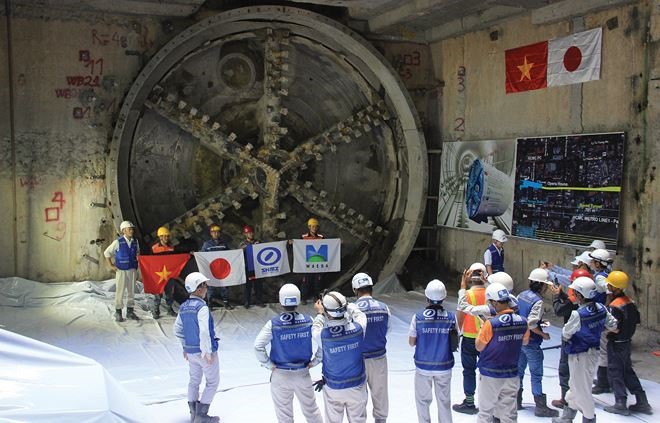A host of investment opportunities awaits developers in HCM City where authorities plan to develop underground spaces.

A host of investment opportunities awaits developers in HCM City where authorities plan to develop underground spaces.
The city Department of Planning and Architecture has said by next year plans for subterranean development would be ready with a focus on the heart of the city and the Thu Thiem new urban area in District 2.
On top of the list is the underground stretch of the metro No 1 line between the Ben Thanh and Opera House stations and underground walking streets below Le Loi Street and the September 23 Park in District 1, according to the department.
Besides, there will be more than 10 other underground projects along the metro line.
Le Hoang Chau, chairman of the HCM City Real Estate Association, said: “Underground projects will offer a new investment opportunity to investors.
“To modernise, it is necessary to develop underground spaces. It is the global trend and will profit the economy.”
So in the next few years the underground property segment would be hot since it offers an ideal location for retailers and food and beverage outlets, he said.
Su Ngoc Khuong, director, Investment Savills Vietnams, said underground construction is an essential feature of compact cities, a new urban design concept.
This is a trend in modern cities to make transportation convenient for citizens, according to Khuong.
Underground development is an irreversible trend in HCM City that planners and investors are targeting thanks to its financial potential.
When underground spaces are identified, there will be a new segment in the city’s real estate market.
But experts have warned that though the market has great potential it will not easily attract investors.
Chau said this was due to the high costs involved.
He pointed to the proposed underground parking lots at Le Van Tam Park, Trong Dong Theatre and Hoa Lu Stadium, which had stalled because of funding problems.
"A project becomes three times as costly when it moves below ground," he said.
To encourage investors, the city should have clear policies on land-use rights and land tax and offer financial support, he said.
Another difficulty that dissuades investors from undertaking construction below ground is lack of data.
Developers often do not know what is under a road. In some cases, after digging a road, investors have found cables and water pipes and have had to stop construction.
Khuong of Savills said this was still a new segment in the country and so developers were cautious.
"While foreign developers have an edge now, local rivals could study other markets and catch up with them," he said.
The competition was bound to be tough but that would be a positive sign for the real estate market, he said. – VNS





